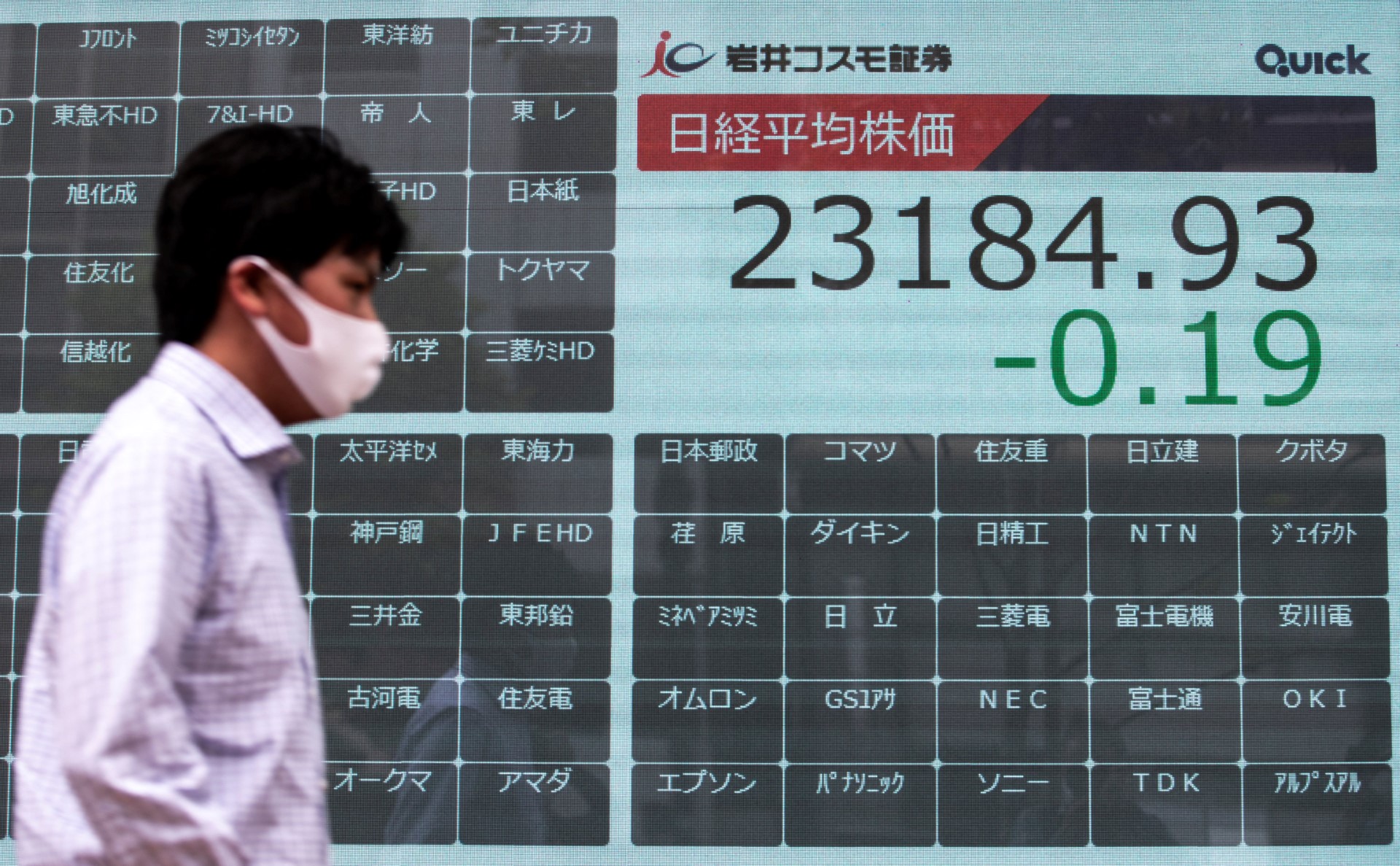Paris, France – Stock markets slid on Monday, extending last week’s sell-off n fears of a regional conflict in the Middle East and worries that US interest rates will remain elevated for longer than initially thought.
The concerns about US interest rates have also been affecting bond markets, with the yield on 10-year US government bonds rising above 5.0 percent for the first time since 2007 during the height of the subprime mortgage crisis.
It stood at 5.02 percent in midday European trading according to Factset data.
“The trajectory of US Treasuries is not merely a question; it is the only question for financial markets,” said Stephen Innes, managing partner at SPI Asset Management, in a note to clients.
“US government bonds are the critical benchmark reference point against which virtually all other global assets are ultimately priced off,” he added.
US Federal Reserve officials have indicated that interest rates may need to stay higher for longer than previously thought to push down persistent inflation as the US economy remains buoyant.
“The rise in long-term yields is due in part to the resilience of the US economy and the fact the the Fed, even if it plays the prudence card, continues to emphasize the possible need of further tightening of monetary policy,” said Sebastian Paris Horvitz, director of research at LBP Asset Management.
Innes said that investors have also been worrying about the substantial US federal deficit, the Fed’s withdrawal from the government and corporate debt markets, as well as selling pressure from China and other large holders of US government debt.
“Hence, the latest leg higher in yields has been driven by factors beyond improving growth expectations, making the carnage in the bond markets far more challenging for businesses to absorb,” added Innes.
The yield on 10-year Treasuries serves underpins much commercial borrowing, so the rise will filter through to higher borrowing costs for businesses and consumers, which is negative for risk assets like stocks.
The rising yield on the secondary market is also an indication that the US government will face higher borrowing costs when it next sells bonds.
Equity markets across Asia ended the day lower, with European stocks also lower in midday trading.
Oil prices slid as Israel’s expected ground offensive against Hamas in Gaza was delayed, with diplomats trying to secure the release of more hostages and some suggesting this could change Tel Aviv’s strategy.
Uncertainty caused by the crisis — sparked by Hamas’s deadly October 7 attack, followed by weeks of Israeli bombardment of Gaza — has seen risk assets tumble with the Vix fear gauge hitting its highest level since March.
While the fear remains that other countries including Iran could be drawn into a regional conflagration, Israel holding off on a ground attack has provided a shaft of light for the crude market.
Oil is “taking a breather while the focus (is) on humanitarian aid and securing hostage releases suggest that a potential ground invasion from Israel can wait”, Yeap Jun Rong at IG Asia said.
“That may contain the risks of further escalation, at least for now.”
“Events over the weekend have offered some hope of compromise with the release of two Israeli hostages, and the start of some aid convoys into Gaza, prompting some modest weakness in crude oil and gold prices,” said CMC Markets analyst Michael Hewson.
Gold, a traditional safe-haven asset, has seen its price run up close to $2,000 per ounce last week.
The US dollar, another safe-haven asset, was also trading higher against its main rivals.








